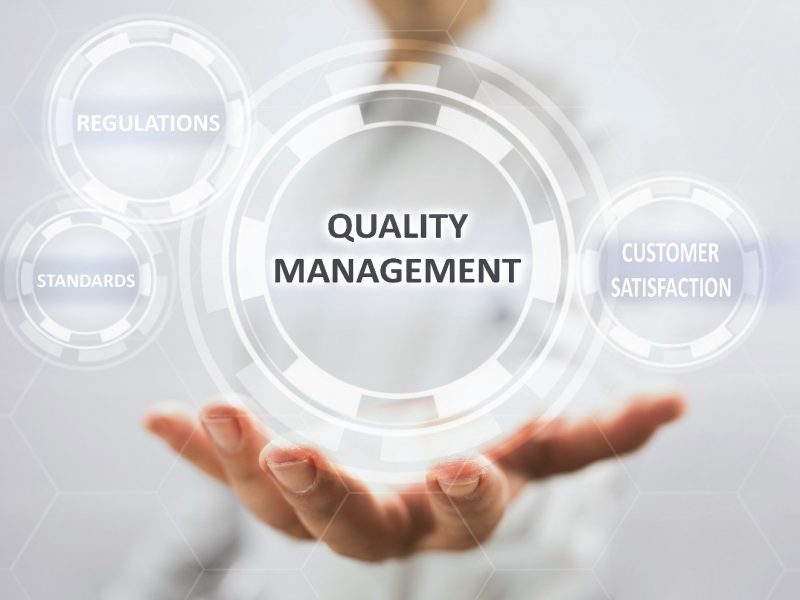Having an optimum quality management system is essential for companies dealing with consumer goods to maintain a good brand. China is the country with the most significant number of consumer products and manufacturers. However, in the past, the quality of some products has been a problem.
Many companies now operate globally and increasingly need to source from overseas suppliers, particularly from China. While they may have their internal quality control systems for their sources, they may not effectively control the quality of imported products.
Therefore, companies need to invest resources in quality inspection companies in China. They can measure and monitor customer satisfaction, improve it and communicate customer expectations to the entire team. Companies need to understand that profitability comes from customer satisfaction and identify their direct and indirect customers and their requirements.
Leadership
Top management must create the right environment, sense of direction, and cohesion to motivate the team to achieve quality goals.
This improves communication within the organization and facilitates process alignment.
The organization and its people are better able to meet expectations and improve the effectiveness of quality delivery.
Leaders are responsible for creating a culture of integrity and trust within the organization and encouraging commitment to delivering high-quality products and services.
Leveraging people
People are an organization’s most important asset, and the organization must ensure that they are competent and empowered at all times. Capable people enable an organization to achieve its quality objectives. People at all levels must be recognized and involved in the management of the organization.
Involving people improves understanding of the organization’s quality objectives and increases creativity, personal development, and satisfaction. Individuals can be recognized for their contribution to improvement, and satisfaction surveys can be conducted for this purpose.
Approach to the process
Any activity that requires an input and produces an output is a process. The information and results need not be physical. The intake of one method is usually the output of another. The key is to understand and manage all interrelated processes to achieve consistent results.
An effective quality management system consists of several processes whose interactions are understood to optimize overall performance. The organization must define the objectives of the quality management system and the underlying strategy for achieving these objectives.
Continuous improvement
A company that does not strive for continuous improvement will not survive in this industry. Therefore, your company’s quality management system should aim to improve the delivery of your products and services over the long term. Improvements will help your company maintain the highest levels of performance while unlocking opportunities.
Organizations can focus on training and education of staff at all levels to support improvement goals. Such improvements require time to monitor and review the results.
Evidence-based decision making
Decisions made in a QMS are usually based on facts and evidence. Understanding, analyzing, and evaluating data helps to increase objectivity and confidence in the final decision.
An organization must have the necessary data, monitor and measure key performance indicators, and analyze the information quickly and effectively. These principles will help improve the decision-making process and the ability to review and challenge past decisions.
Relationship Management
An organization grows by effectively managing its relationships with other stakeholders. Your organization can promote and sustain success by building healthy relationships with suppliers and optimizing their influence on delivering quality products and services.
Relationship management enables common goals and a seamless supply chain with stakeholders.
Why do you need a third-party quality management system solution?
Your company can build a quality management system based on the seven principles, but it may not meet the quality standards of a supplier audit.
Your company’s quality management system is primarily an internal control focused on the company’s processes and quality management rules. Therefore, if your company relies on overseas suppliers and procures goods from China, your internal control system may not be able to meet your company’s quality goals.
Third-party quality control systems provide an industry standard for quality control. These companies have an objective team of personnel experienced in all product lines and can help your company add value to quality issues.
Contracting with these companies can be costly, but ignoring these substantial costs can cost your company even more. Inferior quality products can negatively impact consumer relationships, damage brands, and increase operating costs.
According to a 2019 study by the Consumer News Business Channel, 5-10% of products purchased in stores are returned, with that number rising to 10-15% of products purchased online. Also, the cost of providing returns in the US was 350 billion in 2017. In the meantime, this amount is expected to grow steadily and reach $550 billion by 2020.
Another study found that the cost of low quality can be up to 20 percent of total sales for companies that do not have a proper quality management system. Concerns about the quality of Chinese products continue. Still, if you do not neglect your responsibility to find a reliable quality control solutions company, you can save millions of dollars by importing consumer products from China.













Comments